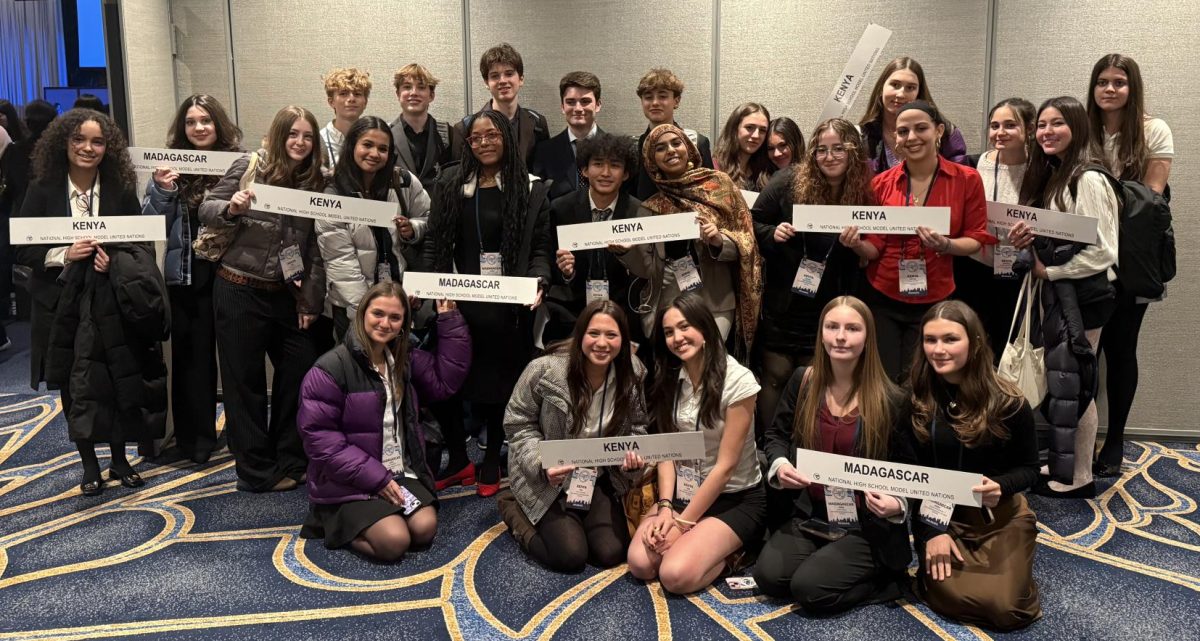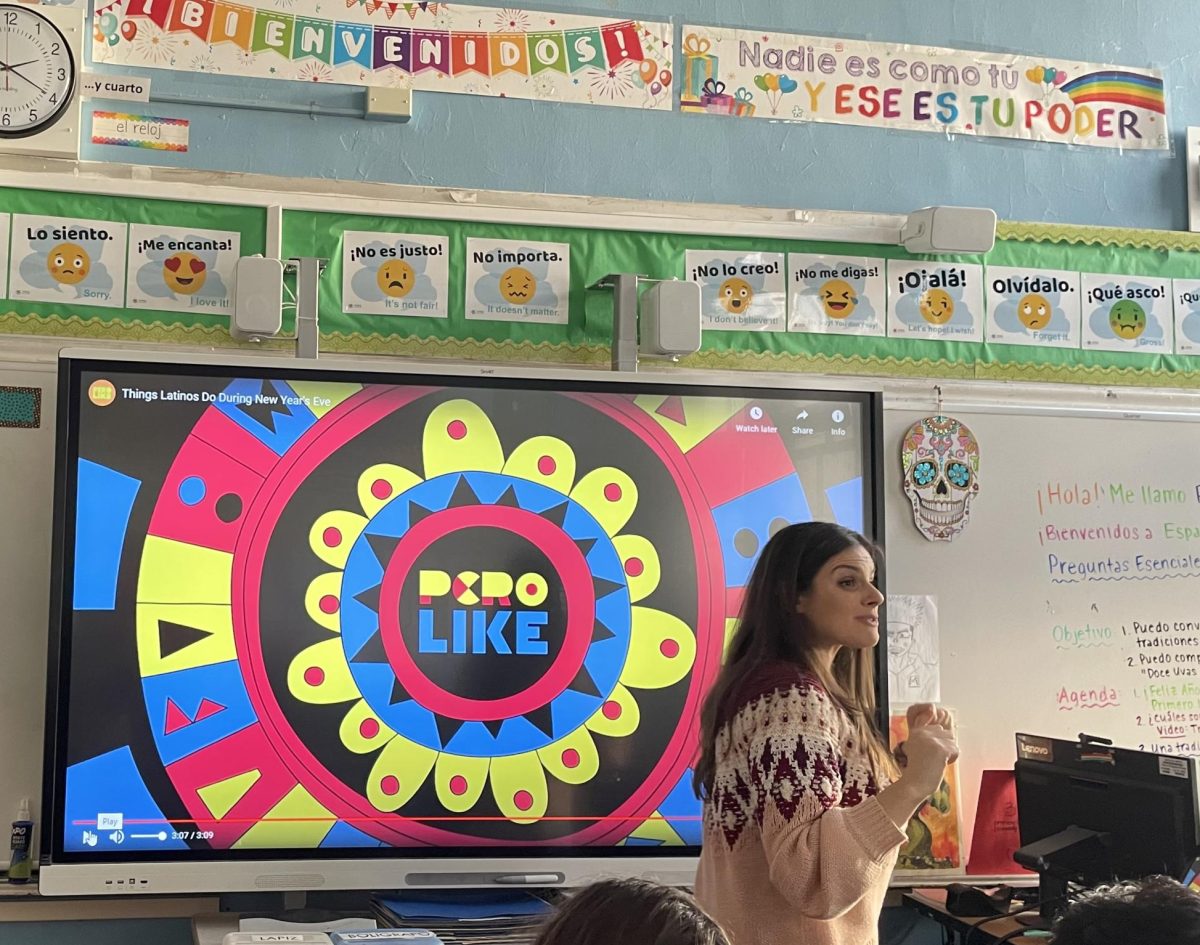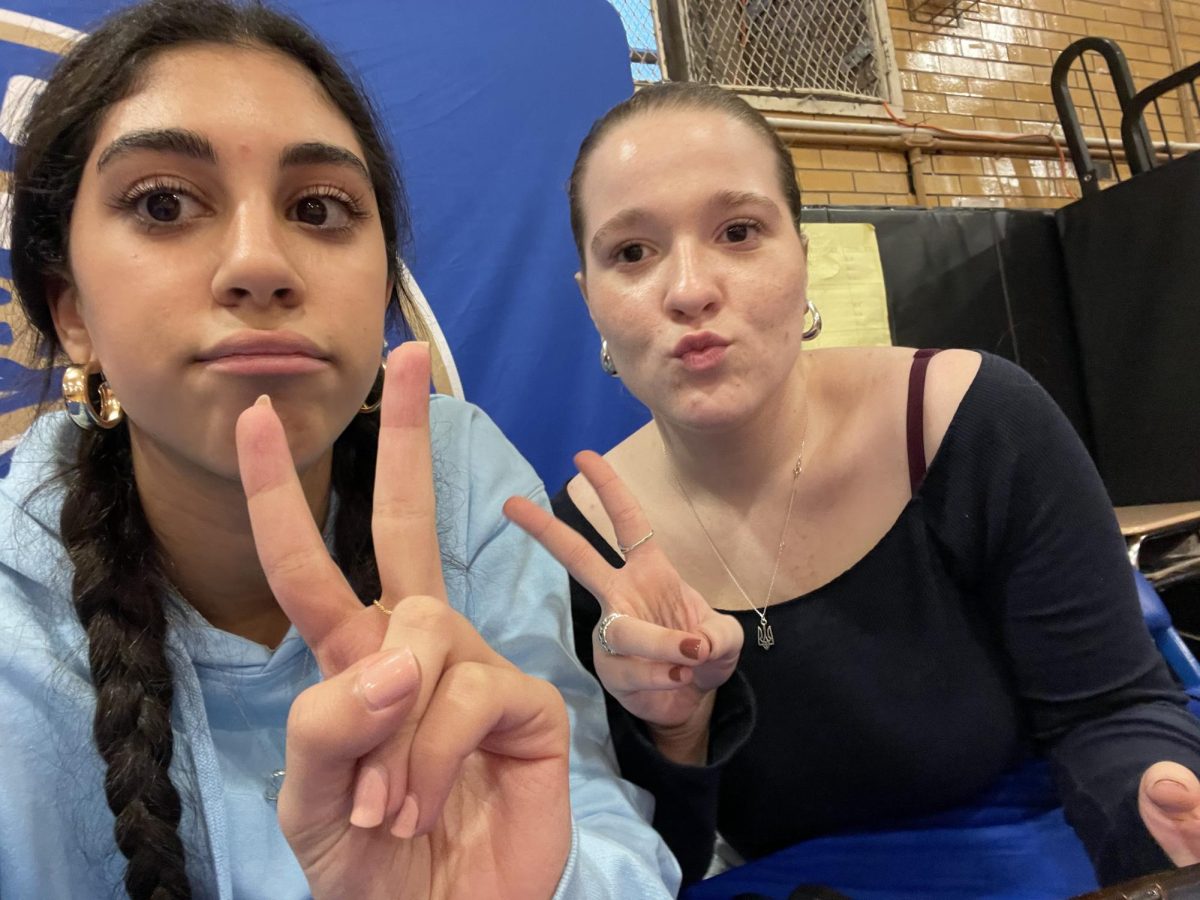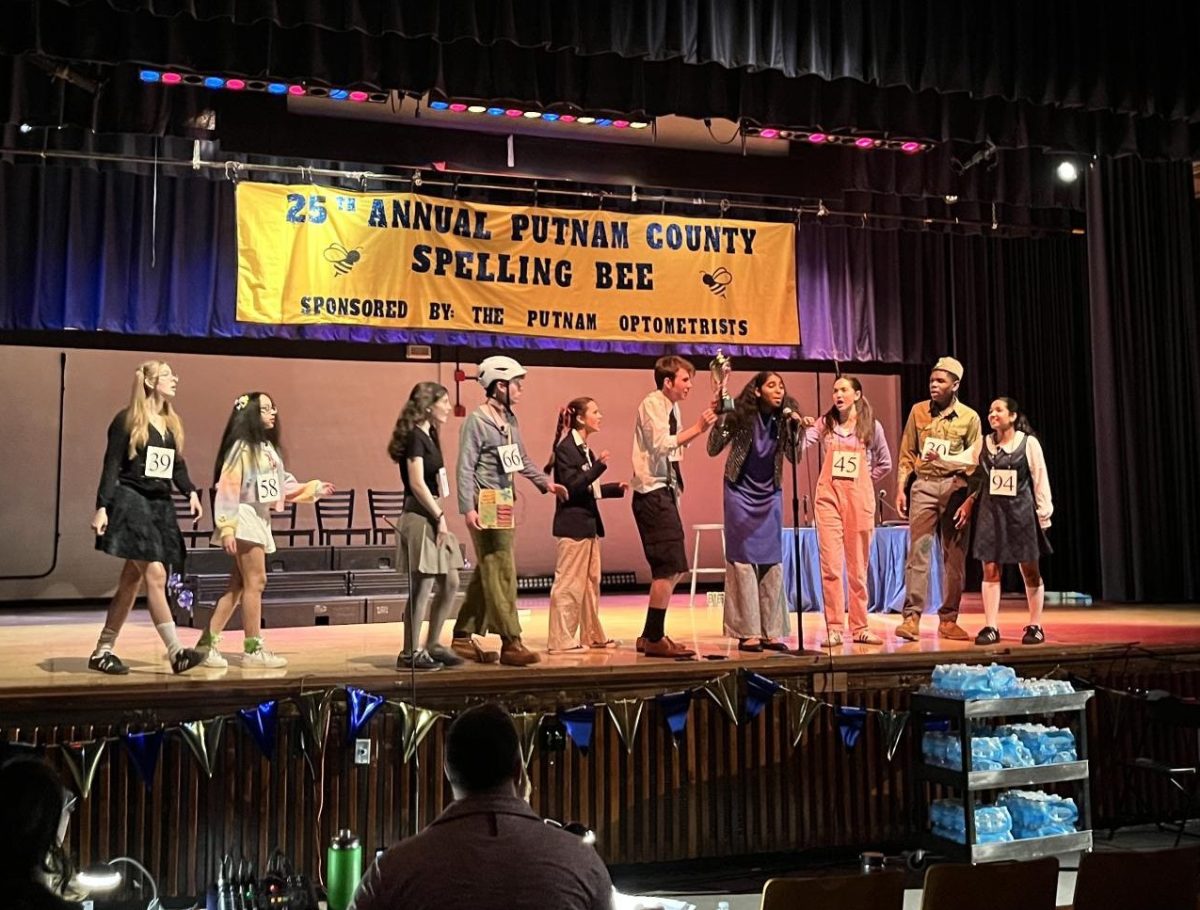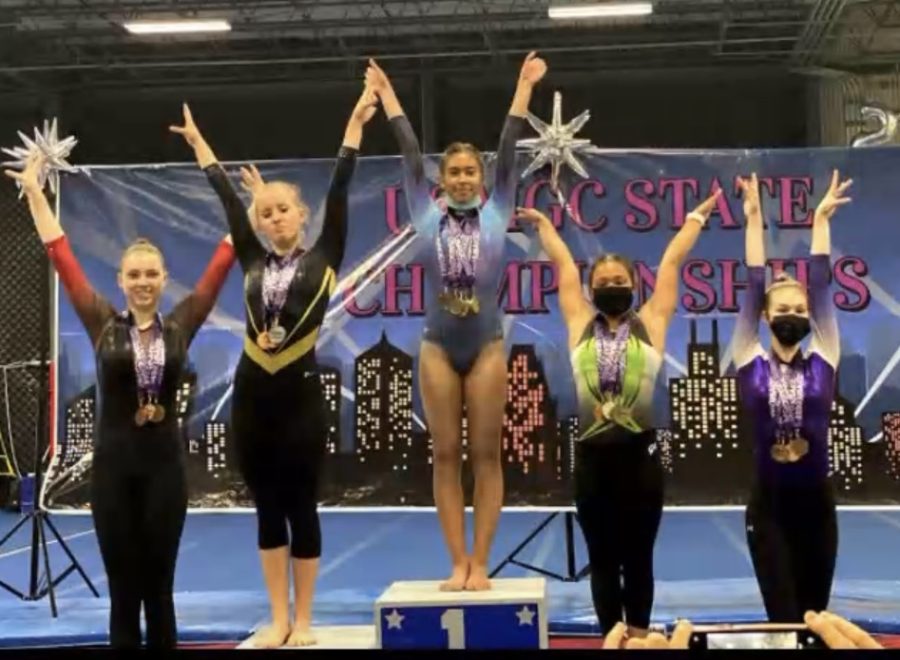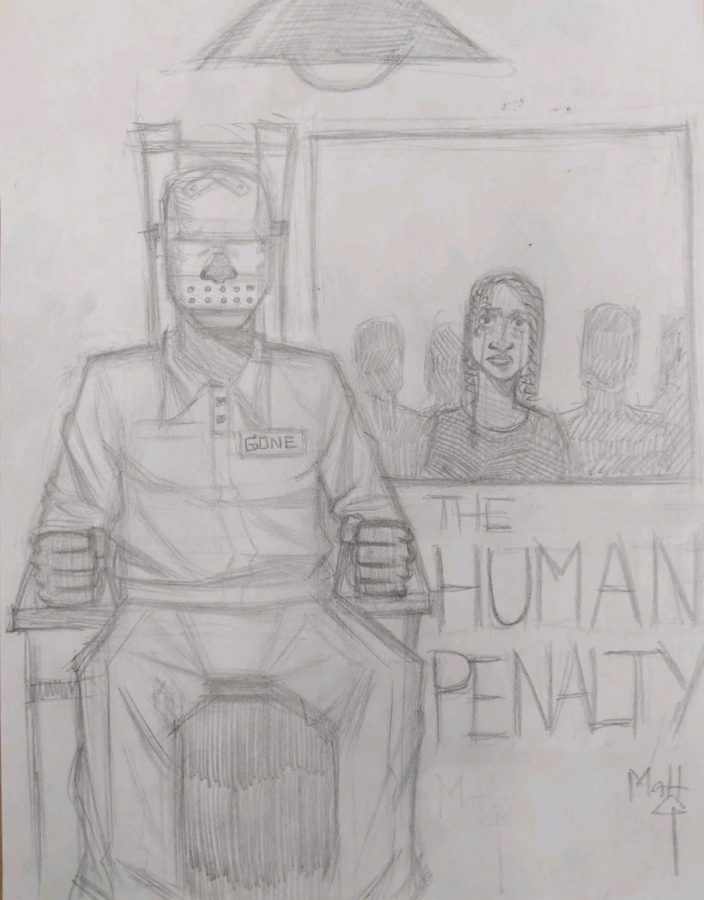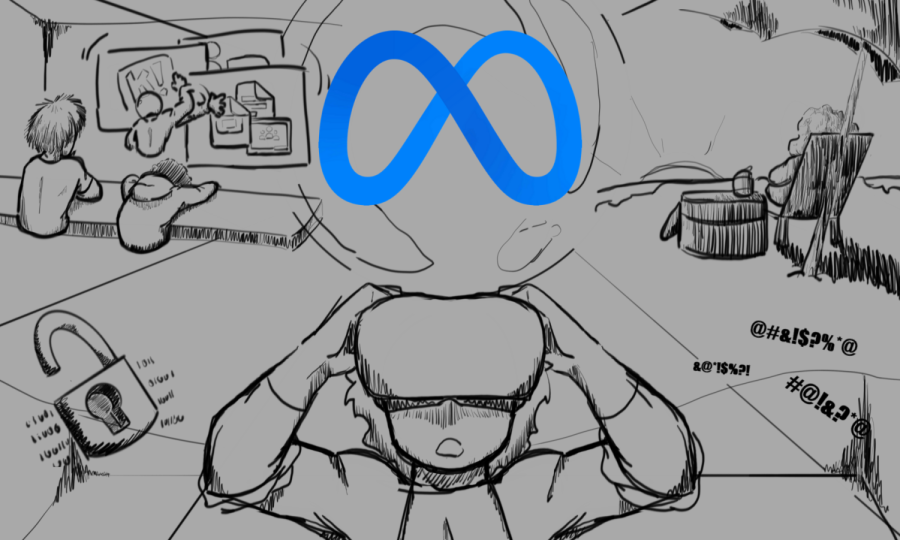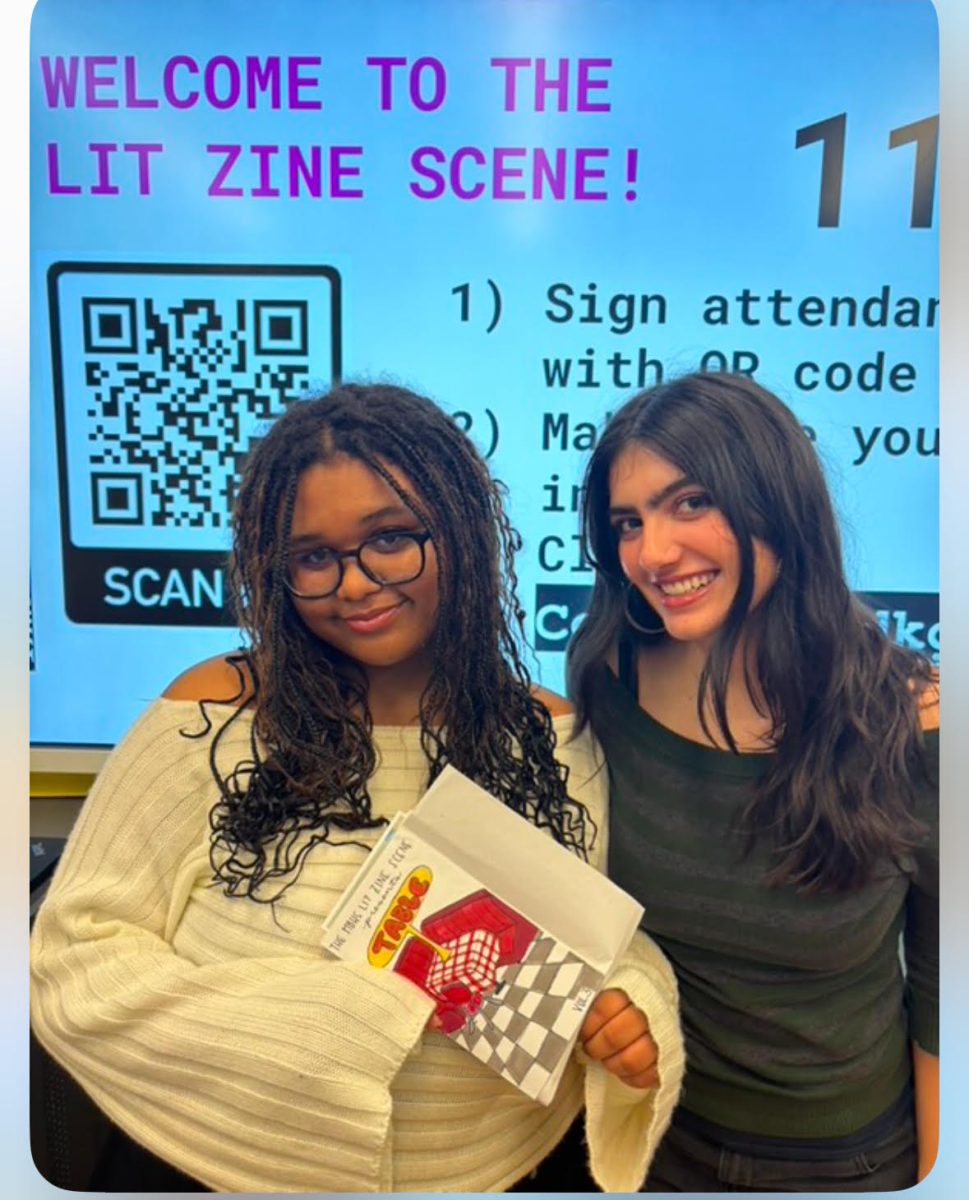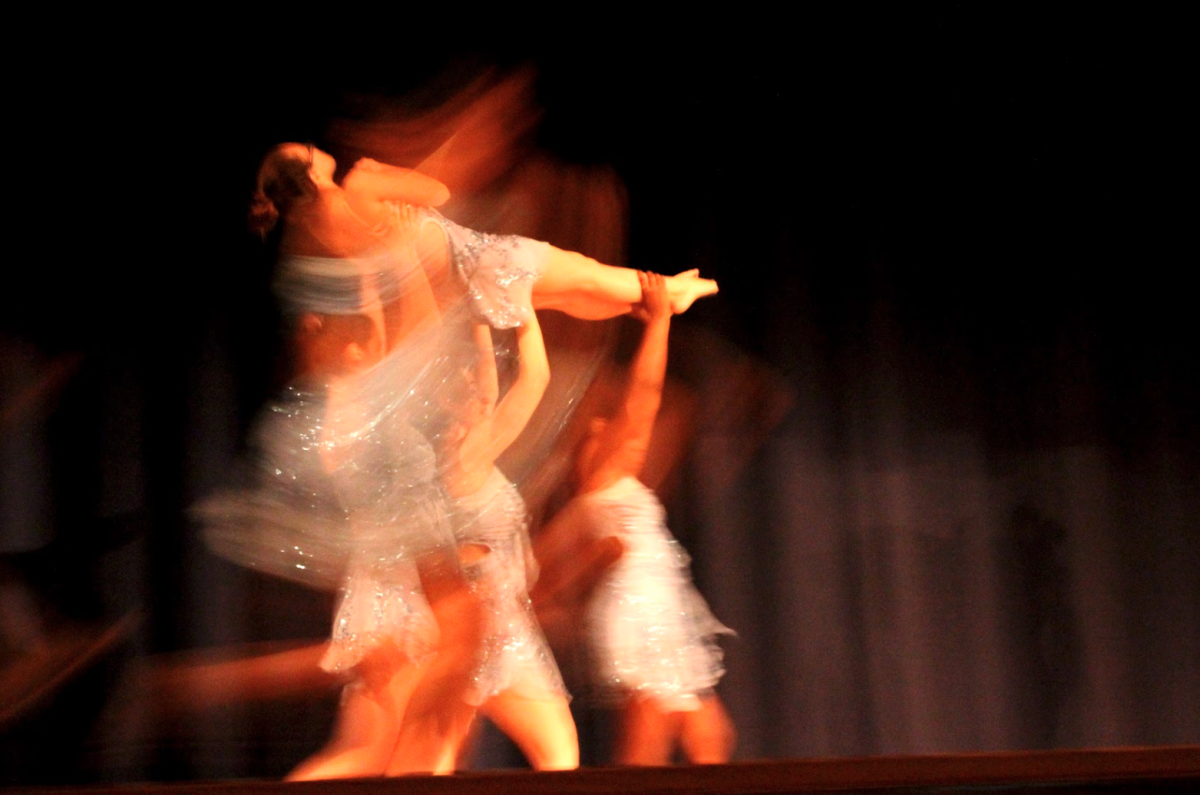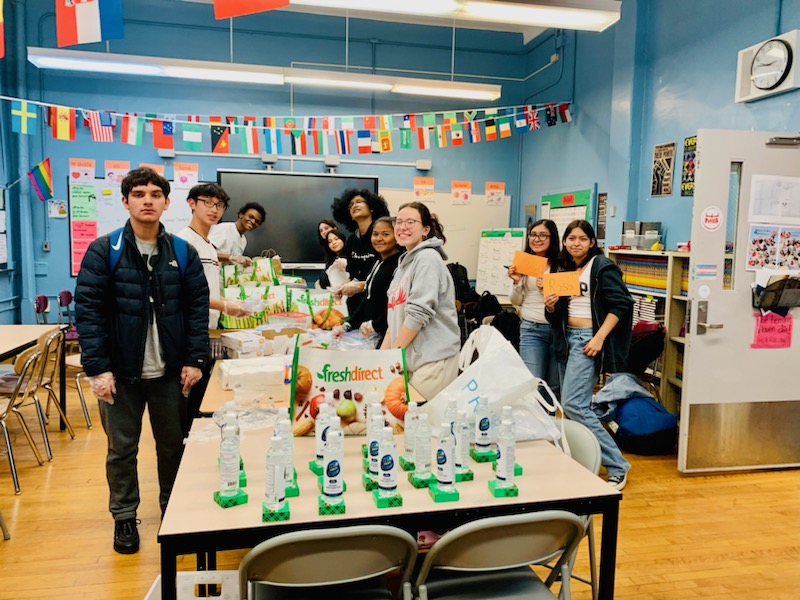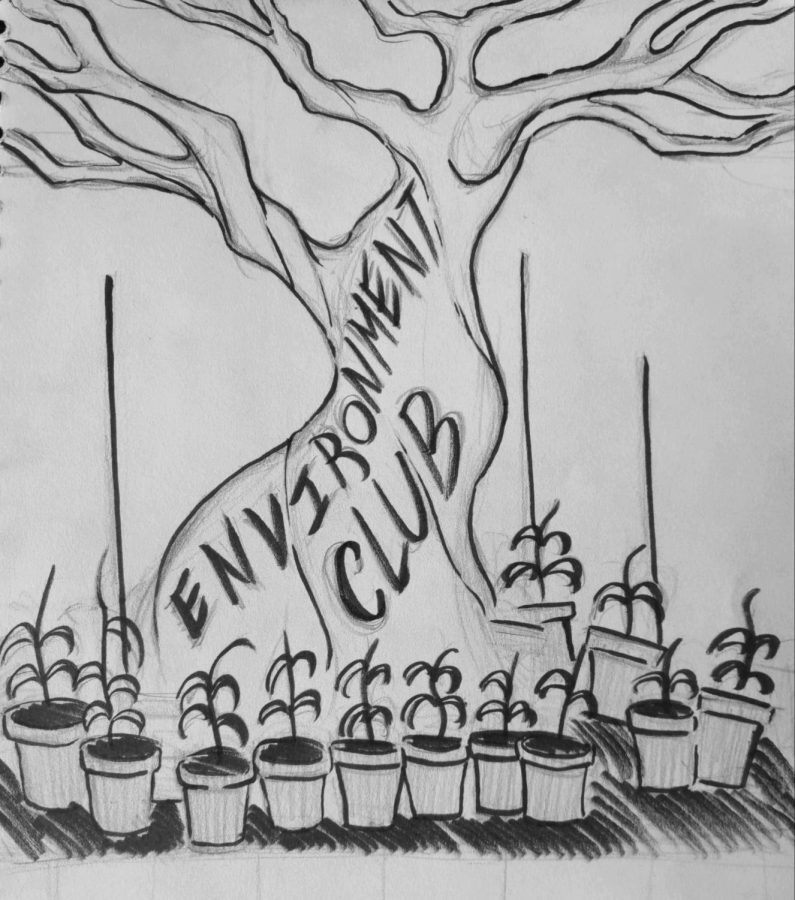The moment you step into a Model UN conference, the energy is electric. Delegates in crisp suits raise placards, voices weave through debate, and resolutions shape the conversation. You’re no longer just a student—you’re a diplomat, a decision-maker, representing a nation. Every word carries weight, and every argument demands precision.
Every Tuesday during club meetings, Model UN members dive into current events. Two students present on a pressing global issue they have researched. Topics have ranged from Haiti’s new era of terror and the Sudanese humanitarian crisis to the wildfires in Los Angeles. But this weekly preparation is only half the battle. Knowing the facts is one thing—defending them under pressure, as students are expected to at formal conferences, is another.
When the conference begins, the rules fade into the background. Now, it’s about thinking fast, arguing with precision, and defending your stance with confidence. For MBHS freshmen Gianna and Lindsay, stepping into this high-pressure environment was more than a test—it was a crash course in diplomacy, survival, and learning on the fly.
For Gianna, getting started wasn’t easy. During the moderated caucus, Gianna listened as delegate after delegate spoke with unshakable confidence. In the moderated caucus—a structured debate where delegates speak one at a time within a set timeframe—she struggled to keep up. The discussion moved faster than expected, leaving little room for hesitation. During this particular conference, the focus was on counterterrorism in Western Africa. While the research process came naturally, writing about such a complex issue within strict formatting guidelines proved stressful. “[My partner] Lindsay and I love writing and could write for days, but knowing what not to write was the real challenge,” Gianna shared. The conference room was buzzing with diplomatic urgency—delegates raised their placards, arguments clashed, and representatives debated resolutions in rapid succession. Gianna scanned the room, trying to keep up, but before she could process one idea, another was already on the floor.
Gianna glanced at her notes—she had prepared for days—but suddenly they felt useless. She and Lindsey found that much of their prepared material—the timelines they compiled, the briefs of extended background information, dossiers on possible allies, and talking points—didn’t align with what was being emphasized during the live debate. Crafting speeches on the fly based on the evolving conversation in the room was a new and challenging skill they had to quickly adapt to. Still, both are eager to attend the next conference, now armed with a better understanding of what to expect.
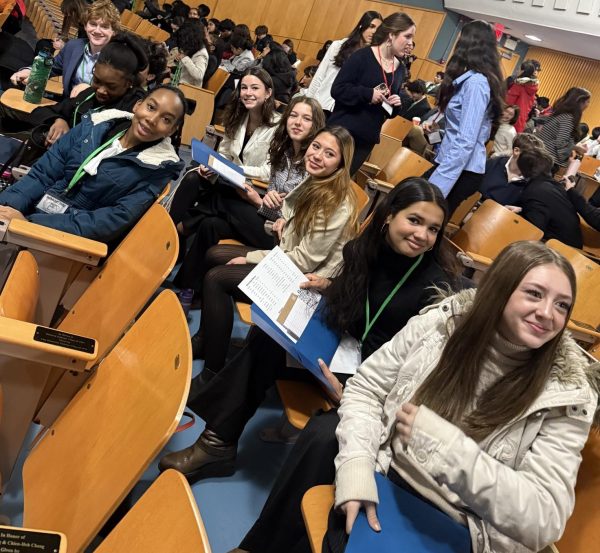
Many first-time delegates struggle with self-doubt, even after extensive preparation. It can be nerve-wracking to see others speaking confidently while you’re just trying to figure it all out. But Gianna’s story also shows what MUN is all about—pushing yourself to improve, try again, and step outside of your comfort zone. Both Gianna and Lindsey came to understand that Model UN isn’t just about learning how to debate; it’s about building confidence. It’s a place where students develop skills like public speaking, teamwork, and research. Gianna learned that sticking with it and being open to learning can really pay off.
In the weeks leading up to the conference, Gianna and Lindsay spent their lunch periods with club leader Ms. Gaspard, diving into research, refining arguments, and preparing for what lay ahead. “They were very driven to learn about Model UN and to face the unknown as first-time participants. They have conquered amazingly,” Ms. Gaspard remarked. Their lunchtime study sessions became a mix of learning and laughter, with Ms. Gaspard quickly became a trusted mentor and support system.
Before the conference, Lindsay had imagined herself commanding the room, delivering arguments with poise and authority. She had coordinated her outfits with her partner and perfected Gianna’s makeup, ensuring they each looked every bit the part of a UN diplomat. But as the conference began, exhaustion hit like a wave—her throat raw, her energy fading, her voice barely above a whisper. The fast-moving debates blurred together, and the confident speeches she had planned were suddenly out of reach.
Lindsay approached the conference with a mix of excitement and apprehension, but as the day unfolded, exhaustion took over. Representing Nigeria alongside Gianna, she had prepared extensively, yet the weight of the fast-moving debate, combined with her lingering illness, made it difficult to keep up. Her voice barely above a whisper, she knew that speaking wasn’t an option.
Since neither of them knew how to draft a resolution, they relied on the speeches they had written together. Despite feeling drained, Lindsay focused on refining their points, ensuring their arguments were sharp and aligned with Nigeria’s stance. As Gianna stepped forward to speak, Lindsay stood beside her, refining each phrase, scanning the room for reactions, adjusting their arguments in real time. While she couldn’t stand at the podium, her words were still part of the debate—every speech they delivered had her fingerprints on it.
Watching the debates unfold, Lindsay felt the frustration of wanting to contribute more but being unable to. The rapid shifts in discussion, the constant urgency—everything moved faster than she had anticipated. Even so, she refused to let the moment slip away. Instead of speaking, she focused on writing, making sure that when they stood to represent Nigeria, their words carried impact.
Though she wasn’t as vocal as she had hoped, Lindsay’s experience taught her something valuable—participation wasn’t just about speaking. It was about adapting, learning from the process, and finding ways to contribute under challenging circumstances. Next time, she would be ready, not just to write, but to stand and speak with confidence.
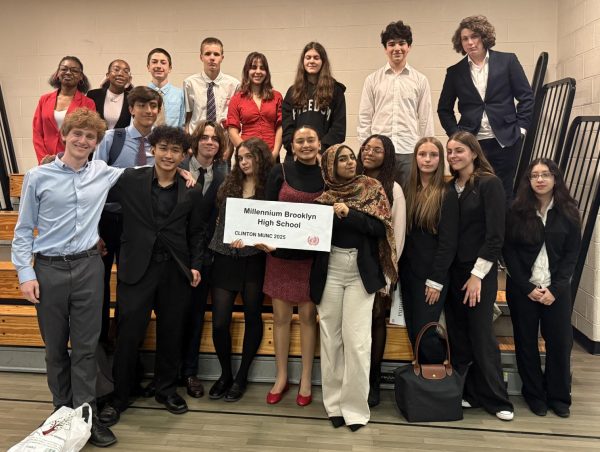
Gianna and Lindsay were assigned one of the most difficult topics of the conference: the Boko Haram conflict. Initially, writing their position paper felt manageable, and they felt confident—until they realized it had to be condensed into a single page instead of the three they had written. Compressing such a complex issue into one page without losing its core message was a significant challenge. But through the process, they learned how to distill their arguments and focus on the most compelling points.
The night before the conference, Gianna and Lindsay sat hunched over research papers, frantically highlighting key facts and cutting down arguments to fit the rigid one-page limit. Between printing last-minute documents and double-checking background information, panic started to set in—what if they forgot something important? At 1 a.m., Lindsay laughed, realizing they had rewritten the same speech three times. They felt prepared—but also knew they had no idea what to expect.
In the end, while their journey may have begun with uncertainty, the two junior delegates faced head on the challenges that make Model UN such a rewarding experience. They might have felt initially hesitant standing in front of a room full of seasoned delegates—but they stepped forward anyway and took the risk. To future freshmen Model UN participants, they encourage you to raise your placard and defend your stance. “Because the only way to learn diplomacy is to live it” says Lindsay. “Whether you dream of shaping policy, debating global crises, or just building confidence, Model UN is the perfect place to begin.”
